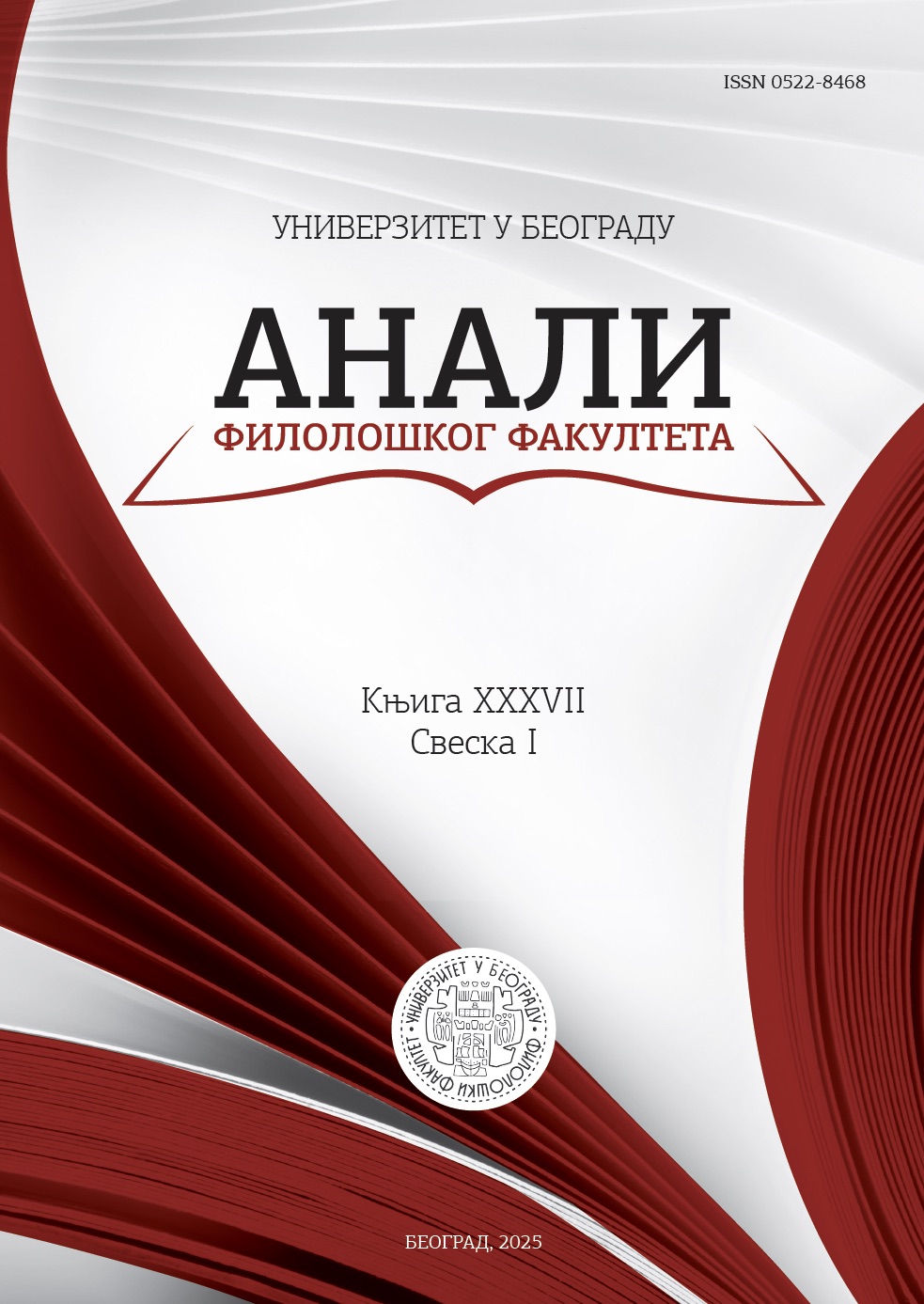Rok za predaju radova
2024-01-06
Rok za predaju radova za sledeći broj je 10. septembar 2025. godine. Od 2024. godine časopis je kategorizovan kao M24.
Прочитај више о Rok za predaju radovaRok za predaju radova za sledeći broj je 10. septembar 2025. godine. Od 2024. godine časopis je kategorizovan kao M24.
Прочитај више Прочитај више о Rok za predaju radova

Annals of the Faculty of Philology is licensed under a Creative Commons Attribution-ShareAlike 4.0 International License.